The instructor, or leader of the group, in all their infinite wisdom and time-honored toe-the-line glory, either babbles on with one eye on the clock, the other on his or her sleeping students, or simply states, "we still have 15 minutes - are there any questions?". Train to time. Paid by the hour. One of the most inefficient systems the world has ever seen. How much time have you wasted waiting unproductively for a bell to ring?
 This is why the concept of Training to Time, and not to distance, bothers me so. I know, deep down, that it's all the same, really. Anyone can look at their training schedule and see a planned hour run, knowing their training pace, and say to themselves, "ok, lets do that nice, flat 6 mile route...". Feeling slow today? That 6 miler may take 1:02. Or - and perhaps more likely, you'll run for exactly 1 hr, and walk in the remaining distance.
This is why the concept of Training to Time, and not to distance, bothers me so. I know, deep down, that it's all the same, really. Anyone can look at their training schedule and see a planned hour run, knowing their training pace, and say to themselves, "ok, lets do that nice, flat 6 mile route...". Feeling slow today? That 6 miler may take 1:02. Or - and perhaps more likely, you'll run for exactly 1 hr, and walk in the remaining distance.But if you are feeling good - if you worked hard and are enjoying the benefits of a series of awesome training days, your reward is, well, you get to look forward to tacking on some distance to your run or bike to make up for your greatness.
Being uncoached, I have the luxury of doing or training however I damn well please. If I ever do get fortunate enough to be able to afford some needed help and advise with my training, I'm sure it will come in the form of training blocks disbursed in time increments, not distance. Except for swimming, of course. Somehow the "train to time" standard has not yet been found to be important in the pool. You don't see too many, "do 8 sets of 2 minutes, followed by 4 sets of 1 minute and then finish up with 4 sets of 30 seconds going all out..." - no, it's still distance and pace in the pool.
Hey...it works. I know it works - the "train to time" standard that is. Hundreds if not thousands of athletes each and every day wake up looking forward to a 2.5 hr bike with a 45 min run off. Those athletes are successful and so are their coaches. My angst boils down to the "mindset" - the frame of mind that is being ingrained every day with each training session.
With very few exceptions, the mission parameters of a race are set by distance, not by time. 2.4 mile swim, 112 mile bike, 26.4 mile run. Not a 1.5 hr swim, 6 hr bike, 5 hr run. Your reward comes at the completion of distance, not when the clock strikes hour X. I have no evidence to suggest that athletes coached in "training to time" perform any better or worse when they race compared to folks training to a distance standard. Somehow, it just makes sense to me that mentally, when you get to that time goal in a race, and you are still miles from the finish line, the person who, in training, is used to making up that distance will have an advantage over the person used to stopping at an arbitrary time.
Perhaps this is a minor point, hardly worthy of this many words and paragraphs in my already hectic day. I don't even hope to accomplish any sweeping changes or influence any of you reading this, be you athlete, coach or both. Maybe I just don't want you to think me "unread" or "behind the times" when I lament of my last 10 mile run, awesome century ride or brick denoted in miles instead of hrs. Crap! I just realized that I'm turning into "Mr. Super Elitist Old School Triathlon Guy"...please don't pee in my water bottles.




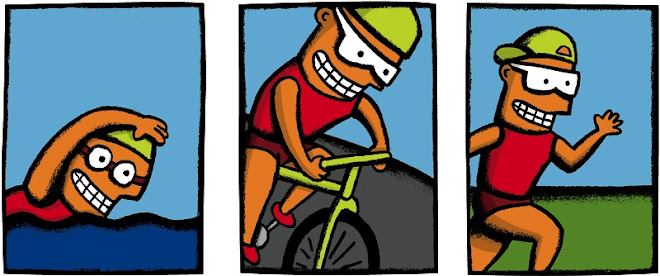




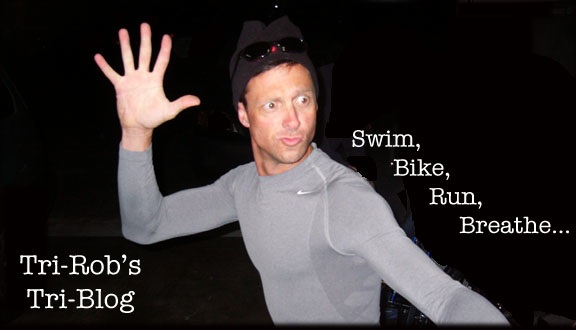



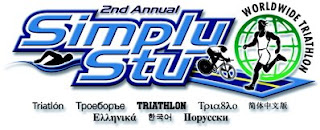






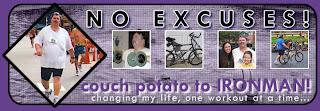



















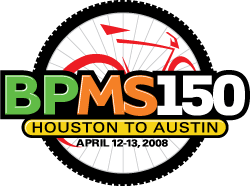











15 comments:
Ha! I use both Time and miles,depends on the day and whats being called for.
Like today. I'm running on an indoor track. On said track it takes 12 laps to complete one mile. I want to run for four hours, if I even tried to keep track of distance it would be impossible.
I can't count (laps) that high.
Me smart... duh.
Well, at least I'll be out of the cold.
Ditto. I use both distance & time. My schedule (Mark Allen Online) is time for run & bike, but when I map out the route I want to do for running, I use distance. I usually leave a little "fudge time in there" depending on what my speed has been & the course.
For the bike. Absolutely. The time can be 1-2mph differrent based on route and fitness. We do however always use RIDE TIME, so water, potty, flat tire break times are not included in the time.
I find I am a totally lazy a$$ if I use a time training standard. Unfortunately most training plans seem to be in time, so I had to convert my entire plan to distances... Since I have a propensity for laziness, if I see I have to run an hour, I know it means that I get credit if I run 5 or 6 miles.
We will note the irony that my first tri this season is an indoor one this weekend where they see how far you swim, bike, and run in an alloted time and whoever goes the farthest wins (I will point out how obviously skewed towards the bike this is!)
Time and heart rate zone (or power someday) for me.
Easily standardized. 2 hours of running in zone 2 delivers about the same stimulus for many people.
I've been doing bike stuff on the trainer, and the computer isn't working properly, so it's time of necessity (and on a tiny indoor track I have to run by time also)--but I totally agree with you on the run thing, I find it mentally makes a huge positive difference to think of it in terms of distance!
Very good point and discussion... I can think of a good comment right now :)
Laura
Good points.
I found that I performed better when I switched my tri training to time (including swimming).
Why? Recovery.
A two hour run is a two hour run. Period. Depending on how my body is performing that day, it can be a 12 miler or a 15 miler. But it's two hours and I'll then have at least 22 hours to recover before my next run.
Going strictly by mileage, if my body is not cooperating and I've got a 15 miler scheduled, I'll run until it's complete. That's not necessarily a good thing. If my body's in a state of overtraining and I can't complete 10 miles in the two hours (yes, it has happened), I only lose by trying to push the last 5 miles. That hole I dig myself into cuts into recovery time and will be a detriment to my bike and swim workouts.
Having said all that, since this winter and season are strictly run focused, I schedule both distance and time. I pad the time a bit to account for those bad days, so if my run falls apart, I won't go past that time.
Anyway, I found that by focusing on time, I get more recovery, which in turn makes me stronger.
Of course, YMMV.
Interesting points. TBH, I just use whatever is easiest to motivate me to get out and train. When it's 90+ degrees and humid outside (or 90+ degrees in the pool), I tend to workout by time rather than distance to avoid overtraining and burnout (assuming race day conditions will likely be much more pleasant). Either way, I think it's important to be realistic as to what is going to adequately prepare you.
I use time only and I think it's kind of weird, but I do what I'm told!
I am a distance man myself. I keep thinking, "So if it takes you 2 hours to run one mile you are not going to be able to complete an Ironman no matter how many two hour runs you go for." Here is the other thing, as you allude to, when things go wrong during a race, and they most likely will at some point during a long race, your time on the course could automatically extended by an hour, two hours, three hours…maybe more. If you have only been training to a time standard you have not put the training necessary to bridge the gap between your expectations and your new reality. I promise you a 10 hour Ironman is different race from a 14 hour Ironman which is also a different race from a nearly 17 hour Ironman. Sometimes what you need in training is plain old fashion time on your feet, time in the saddle, time in the water and the knowledge that even on your worst days you can buck up and cover distance. Anyhow, you can get plenty of junk miles training to time or distance, that responsibility always lies with the athlete no matter what system you choose.
I am totally in agreement with you. I like distance. I had to go out for a 45 minute run the other day, and I did just that - but my mileage was 4.96 miles and that has bugged the shit out of me ever since. I wanted to finish the .04, but then the plan said 45 minutes, so I stopped. I don't know if it's good or bad, but I don't like it.
Bottom line. Chicks are more likely to be impressed with, "I've run 30 miles and rode my bike 200 miles this week," versus, " I ran 4.75 hours and rode 9.3 hours this week."
Hey Bigun! I farted in the water today.
Yeah... that's all I got.
Breathe bro... breathe...
p.s. "Train to Standard"... you gave me terrible flashbacks... something about a swamp in North Carolina... I hate you.
Just don't breathe tri-rob's water.
Baboo is right on with his comment. For us, ahem, "slower" athletes, maybe a 2 hour run doesn't equate to 12 or more miles. Then what????
I used mostly time last year and wasn't very pleased...this year I'm sticking with distance.
Post a Comment